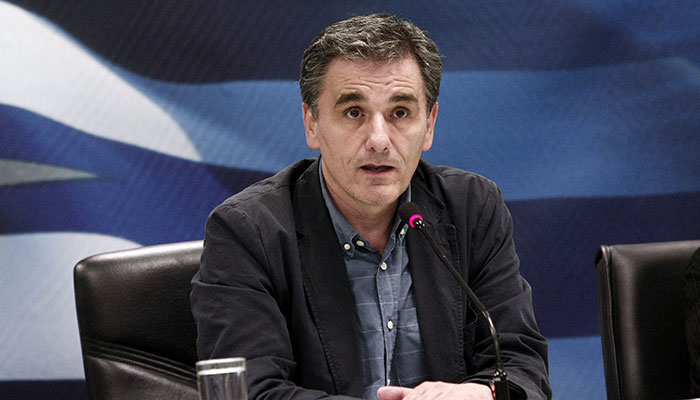web_euclid-tsakalotos_shutterstock_293950865.jpg

Euclid Tsakalotos, Greek finance minister.
Euclid Tsakalotos stressed that the country had “done its part”, passing yet another series of austerity measures at the behest of its European lenders and the International Monetary Fund – a condition required in return for the next tranche of loans.
Despite Greece conceding to and fulfilling these terms, which it had originally rejected, talks to move the bailout forward broke down last week as a result of an ongoing dispute between the IMF and Greece’s biggest lenders, namely Germany.
The discord now centres on relief for Greece’s debt pile, which tops 180% of GDP. While the IMF argues a more generous offer is needed, EU lenders are resisting these calls.
This is continuing to hold up Greece’s access to the €7.5bn loan – needed for the country to meet a debt repayment due in July – and keeping the country in limbo over its future after over six months of wrangling between the different parties.
“What was on the table was if Greece carried out its reform package then creditors would ensure there would be a clear runway through clarity for debt,” noted Tsakalotos, stressing that Greece had kept to its side of the bargain.
“There are no excuses for not getting this overall deal that the Greek economy so desperately needs in its efforts to access the markets.”
The long-run impasse over this stage of the bailout has already hit the Greek economy, prompting the revision of optimistic forecasts that had raised hopes for the country. Data from the first quarter of this year showed its economy had fallen back into recession as confidence faltered.
Amid heavy criticism at home, Greece pushed through yet more unpopular measures to cut pensions and raise taxes in a bid to end the deadlock earlier this month.
The move sparked a general strike as workers and the Greek citizens objected to yet more austerity after years of enduring harsh economic reforms in return for loans.
But without the IMF’s approval for the deal, Germany is reluctant to disburse any more loans. The bailout is increasingly unpopular in Germany, and it is thought the IMF’s endorsement would bring much needed credibility.
As well as debt relief, the IMF disputes some of the bailout’s targets as unrealistic, namely that Greece should maintain a budget surplus excluding debt repayments of 3.5% of GDP for a number of years after the bailout concludes in 2018.
The fund’s director of communications, Gerry Rice, explained last week that the fund is “just trying to do our job”.
“We have a responsibility as the IMF to make sure that any such agreement would be in the best interest of the member country,” he said. “And a big part of that is to ensure that the growth assumptions are realistic, because it does not help anyone to have assumptions that may be over optimistic, and to ensure that countries’ debt is sustainable.”
Jennifer McKeown, chief European economist at Capital Economics, said it is “hard to argue with the IMF’s judgement”.
“Greece is now back in recession and with huge public resistance to austerity, it is extremely difficult to imagine it sustaining large primary surpluses,” she said, adding that any delay to the promised debt relief would be a “bitter pill to swallow” for the country.












